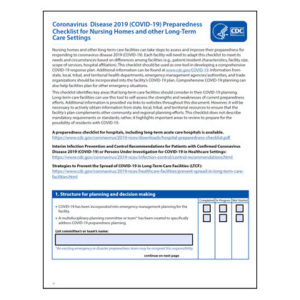Connecting with seniors to reduce hospitalizations
Every morning when Joann Wayans wakes up, she is asked a variety of questions: Did you take your medicine? Are you short of breath? Did you elevate your head while lying down? Did you weigh yourself? Are you experiencing increased swelling in your legs?
Wayans, a 70-year-old with congestive heart failure, peripheral vascular disease, and asthma, lives with Health Buddy, a user-friendly in-home telehealth monitoring appliance designed to track her vital signs and keep her out of the hospital. Containing a brightly lit, easy-to-read screen and four easy-touch buttons, Health Buddy enables patients to answer personalized questions and listen to reminders and tips on how to control their health condition. The personal communication system serves as the interface between clients and caregivers, and it uses a telephone line connection to capture and report real-time data.
Approximately 300 Jewish Home and Hospital Lifecare System (JHHLS) clients in the Bronx and Manhattan are using Health Buddy to keep them stable and at home and out of hospitals. The Jewish Home and Hospital’s Home Care Agency is Medicare-certified to care for chronically ill patients and is the largest home care subscriber to Health Buddy technology in the New York metropolitan area.
Founded more than 155 years ago, JHHLS is a not-for-profit organization serving nearly 10,000 older adults annually through traditional long-term care, subacute care, rehabilitation services, community services, and senior housing programs. Services are provided at the system’s three nursing home and rehabilitation centers in Manhattan and the Bronx, and Sarah Neuman Center for Healthcare and Rehabilitation in Westchester. The fourth division, Lifecare Community Services, provides community services throughout the metropolitan area, including home care, adult day care, geriatric outreach, transportation, telemedicine, naturally occurring retirement community (NORC) programs, and senior housing.
JHHLS also educates and trains physicians and medical professionals in geriatrics in affiliation with Mount Sinai School of Medicine, where more than 2,400 fourth-year medical school students have participated in a mandatory rotation program. A strong component of the system’s activities includes research to improve the quality of life of older adults. JHHLS is also home of the Lester Eisner, Jr., Center for Geriatric Education; the Saul Alzheimer’s Disease Special Care Unit; the Greenberg Center on Ethics in Geriatrics and Long Term Care; and the Center on Pharmacology for the Elderly (COPE).
For Wayans, living with Health Buddy has paid off. She has not been hospitalized once since 2004, when her home health agency, the Jewish Home and Hospital Long Term Home Health Care program, first recommended the electronic device. Before that she had repeated hospitalizations because of a buildup of fluid in her lungs, a kidney infection, and an asthma attack.
Responding to Health Buddy’s daily prompts, Wayans is encouraged to take her medicine, keep her legs elevated when sitting, and keep her head elevated when lying down. Weight gain or loss is also monitored daily along with her subjective reports of lower extrem-ity swelling or feelings of an increase in shortness of breath. This vital information is transmitted nightly via a standard telephone line to a secure, Internet-based, HIPAA-compliant software platform. The following day an authorized JHHLS registered nurse reviews and interprets results and takes proactive measures to promote early intervention. For instance, a weight gain of two or more pounds above Wayans’s baseline weight would show up in red letters near her name on the monitor at the Jewish Home and Hospital Home Care Agency headquarters. A nurse monitoring that screen on a daily basis then promptly calls the patient’s primary nurse and alerts him or her to the problem. The nurse then follows up with the appropriate intervention, which may include a same-day visit to the home to examine the patient, assessing the need for a visit to the physician, or directly contacting the physician to discuss a medication change to prevent further decompensation.
Mildred Sullivan, an 85-year-old with congestive heart failure, diabetes, hypertension, brachial neuritis, asthma, and COPD, also has a Health Buddy that has kept her out of the hospital for the past five years. Sullivan’s last hospitalization was in 2001 when she had a pacemaker implanted to stimulate and control her irregular heartbeat.
“The Health Buddy reminds me to take my medicine, to rest in between chores and bathing, and to watch my weight on a daily basis,” says Sullivan, who lives alone but has a part-time aide five days a week. “It’s a lifesaver.”
Eighty-year-old Phillip Rubin suffers from severe arthritis and has been caring for a loved one whose health has significantly deteriorated. He was feeling isolated and overwhelmed. Both Rubin and his significant other were enrolled in the telecare program, which provided diabetic counseling and visits by a social worker for long-term planning, and began using a JHHLS Health Buddy. Rubin’s overall health has improved and he is no longer feeling isolated and overwhelmed. In fact, he no longer needs the Health Buddy and has instead signed up for a different JHHLS Community Services program that provides opportunities for case management, socialization, and disease management instruction. “Thanks to the Health Buddy connection, I have been able to keep my partner at home,” says Rubin. “And now that we no longer need Health Buddy, we are grateful for all the support, services and attention that we get through Community Services. It has changed our lives.”
For more information, phone (914) 777-6051 or visit https://www.jewishhome.org. To send your comments to the author and editors, e-mail rosenberg0107@nursinghomesmagazine.com.
Related Articles
Topics: Articles , Clinical











